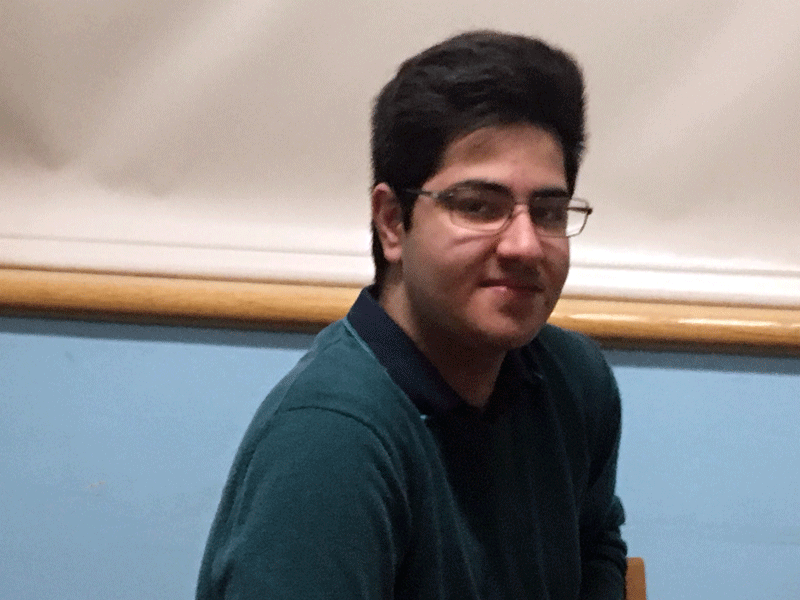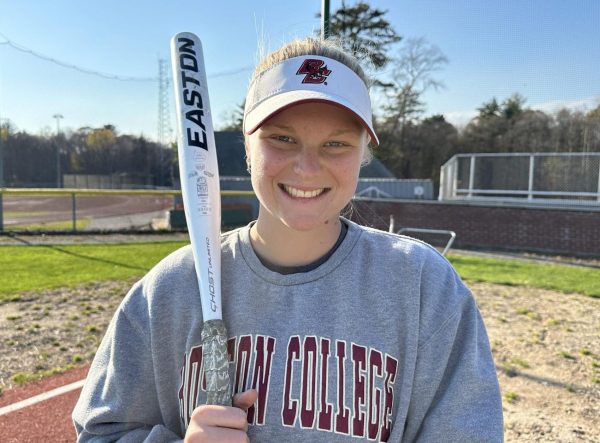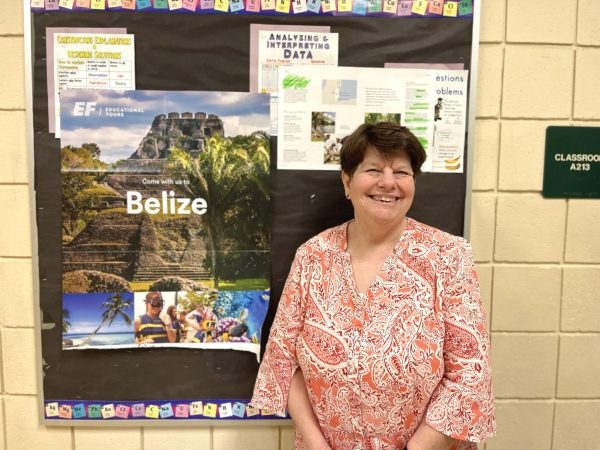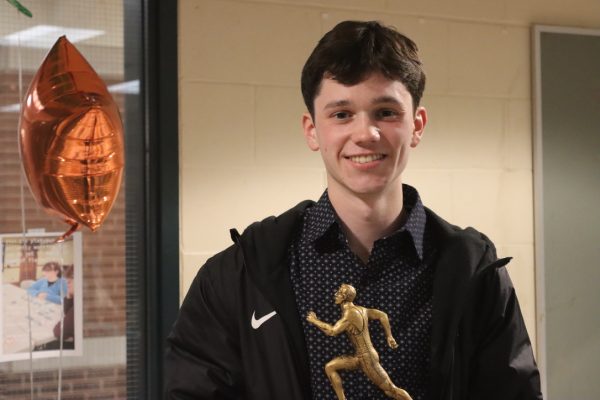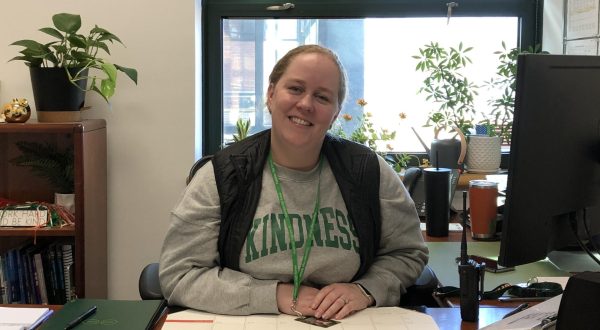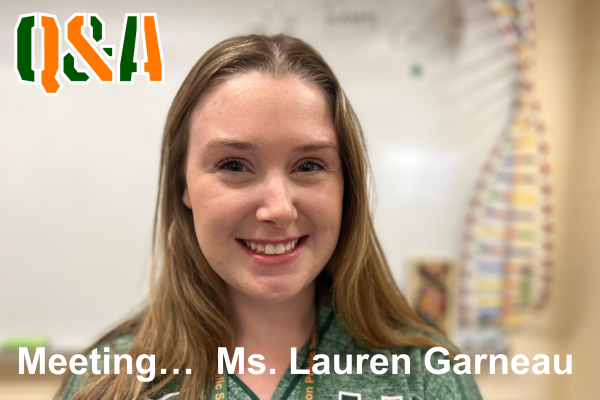From the Middle East to Massachusetts
Transitioning to a different country with a new language and new customs would be challenging for any teen, but Mahdi Maymandi-Nejad’s determination and perseverance helped him do whatever he could to fit in. Going into freshman year can be awkward for anyone. Having moved from the sun-baked, arid landscape of Mashhad, Iran, a city with nearly two million people to the Boston suburb of Hopkinton in the United States proved that Maymandi-Nejad had more to deal with than most incoming freshman.
“[We] moved here for better opportunity,” Maymandi-Nejad said. “[America is] the home of many opportunities, you know?”
One night, after a long day of school, his parents sat Mahdi and his older sister Mahta down to talk about emigrating to the United States. While this had been his parents’ plan all along, it was now time for them to make it a reality.
The move happened a few months later. Maymandi-Nejad and his parents found their way to Hopkinton, Massachusetts, while his older sister remained in Iran to finish her bachelor’s degree in electronic engineering before leaving the country.
From a young age, Maymandi-Nejad looked up to role models in his family. Most worked in some sort of engineering, scientific, or electrical career. The idea that people with these jobs go far in life has inspired him. It is also a main reason his family made their move.
His father signed him up for a programming class at age nine. Most children from his school in Iran were expected to go into mathematics or the sciences.
However, Maymandi-Nejad recalled, “I went there for about two sessions. I was disappointed.”
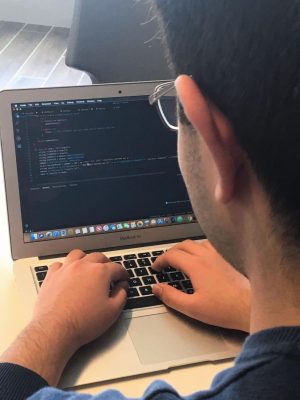 Soon, he was introduced to another aspect of computer science, web design. He credits this medium for leading him to better understand and even enjoy the process of programming.
Soon, he was introduced to another aspect of computer science, web design. He credits this medium for leading him to better understand and even enjoy the process of programming.
This would eventually lead to his growing love for technology and curiosity about how things work.
But his interests in technology were not the only things about him that were subject to change.
“I’ve become a different person,” said Maymandi-Nejad. “I’m a lot more social here than I was in Iran. People here are really easy to talk to and more friendly. Everyone in Iran is warm and hospitable, but always very formal. Being here is like a complete 180-degree rotation.”
That formality has bled into other aspects of his life over the past year and a half. He joined the BPA (Business Professionals of America) competition team at the high school, where professionalism and formality are valued.
“In my first year, I was looking at the list of clubs available,” he said. “I saw the word business and was immediately interested in learning more since I had previously owned a company.”
As a freshman, it was hard for him to compete. Learning English is something he continues to overcome. Maymandi-Nejad admits that he still isn’t fluent in the English language, and he is still learning new words and expressions on a weekly, if not daily basis.
“To this day, I still have to explain phrases and things to him,” said Kadis Cureton-Augustin, a fellow sophomore and friend. “But I did it a lot more back when I first got to know him.”
Still, Maymandi-Nejad is succeeding, taking home two first-place awards at the BPA state level this spring.
He is also succeeding in academics as well.
“Chemistry by itself is almost like another language,” ninth-grade chemistry teacher Kristen Murphy, who taught him during his first year in the U.S., said. “He was amazing. I was so impressed that he was able to make such a big cultural shift and language shift while continuing to excel at a high academic level.”
Mrs. Murphy, who has been teaching at the school for five years, mentioned the rise in many new students in her classes from different countries and cultures.
“I think you have to be more creative with how you explain things and have multiple ways to do it so you can make sure that all of your students really understand,” she said.
Murphy also added that all of the teachers across the state of Massachusetts are being required to attend classes on ELL, a system of ways to better teach students who are learning English as a second language.
Classmate Cureton-Augustin also remarked about contact with many people from different countries and cultures in Hopkinton over the years. He has enjoyed learning about the rest of the world through them.
He says Maymandi-Nejad has taught him a lot about the traditional social and political structures of Iran and he is intrigued by how different the two countries are from each other.
A recent trip back to Iran for Maymandi-Nejad has greatly changed his view of the world.
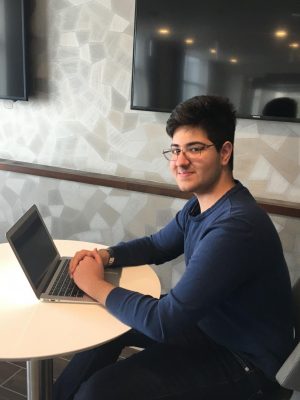 “I saw a new culture in America and gained a new perspective,” he said. “It gave me a look at myself. When I went back, I tried to look at everything from both perspectives.”
“I saw a new culture in America and gained a new perspective,” he said. “It gave me a look at myself. When I went back, I tried to look at everything from both perspectives.”
He also appreciates when other students ask him his position on the current events in Iran and greatly encourages them to do so.
“If you go to places like Iraq or like Syria, it’s really dangerous. There are a lot of domestic fights,” he said, “But Saudi Arabia, Iran, and the United Arab Emirates are very stable countries in terms of social life. Going to Iran might seem like an unsafe choice for most Americans, but it’s an amazing experience.”

